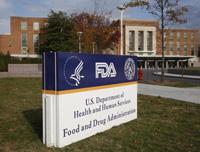
June 20, 2011 – The U.S. Food and Drug Administration (FDA) unveiled a new strategy to meet the challenges posed by rapidly rising imports of FDA-regulated products and a complex global supply chain in a report called the "Pathway to Global Product Safety and Quality."
“Global production of FDA-regulated goods has exploded over the past 10 years. In addition to an increase in imported finished products, manufacturers increasingly use imported materials and ingredients in their U.S. production facilities, making the distinction between domestic and imported products obsolete,” said Commissioner of Food and Drugs Margaret A. Hamburg, M.D. "There has been a perfect storm - more products, more manufacturers, more countries and more access. A dramatic change in strategy must be implemented."
The FDA report calls for the agency to transform the way it conducts business and to act globally in order to promote and protect the health of U.S. consumers. Highlights of the report include four key elements needed to make the change:
1. The FDA will partner with its counterparts worldwide to create global coalitions of regulators focused on ensuring and improving global product safety and quality.
2. The coalitions of regulators will develop international data information systems and networks and increase the regular and proactive sharing of data and regulatory resources across world markets.
3. The FDA will build in additional information gathering and analysis capabilities with an increased focus on risk analytics and information technology.
4. The FDA increasingly will leverage the efforts of public and private third parties and industry and allocate FDA resources based on risk.
"FDA-regulated imports have quadrupled since 2000,” Hamburg said. "The FDA and our global regulatory partners recognize this new reality and realize we must work proactively and collaboratively to address the challenges we face. The FDA must further collaborate and leverage in order to close the gap between our import levels and our regulatory resources. This report is an important step in ensuring we are able to fulfill our critical public health mission."
The change in strategy will address trends expected to be seen worldwide in upcoming years:
• Western economies will increase their productivity to compete with emerging markets and economies, leading to more imports and increased pressure to reinvent manufacturing processes.
• Money, goods, data and people will increasingly and more quickly cross borders. Today, a typical U.S. manufacturing company relies on more than 35 different contract manufacturers around the world.
• Growing demand, constrained supply, and increased regulatory and social scrutiny will determine what resources are used, how they are used, and the cost. Manufacturers will adopt new manufacturing processes and emerging technologies in response.
• Governments worldwide will increasingly be called upon to mitigate the sometimes negative impacts of globalization on their citizens, making the operating environment for companies more complex.
The new strategy also builds on changes already set in motion by the FDA. The FDA increased the number of foreign drug manufacturing inspections by 27 percent between 2007 and 2009 and has opened a series of international offices in key locations. FDA has also collaborated with its counterparts in the European Union and Australia on drug inspections, worked to harmonize certain aspects of drug regulation via the International Conference on Harmonization, and joined the Pharmaceutical Inspection Cooperation/Scheme (PIC/S), which is an organization of the drug manufacturing inspectorates from 39 countries. The FDA and other global leaders are also creating an expanded global regulators forum for medical devices.
The FDA is also broadening its food safety efforts under the FDA Food Safety Modernization Act (FSMA). This new law creates a new foods safety system, in which FDA has a legislative mandate to require comprehensive preventive controls across the food supply chain and has new tools to hold players in the supply chain responsible. There are also new inspection mandates, including a mandate leading to the inspection of more than 19,000 foreign food facilities in the year 2016.
The FSMA recognizes the importance of partnerships in the success of this new food safety system, particularly in the area of imports. For example, importers now have an affirmative obligation to verify the safety of the food they bring into the United States. In addition, the FDA will establish a program for qualified third parties to certify that foreign food facilities are in compliance with U.S. requirements and can require certification as a condition of entry into the United States. As well, FSMA explicitly encourages arrangements with foreign governments to leverage resources.
“In order to cope with the fundamental global shifts on the horizon, the FDA will have to substantially and fundamentally revise our approach to global product safety. We can no longer rely on historical tools, activities and approaches,” said Acting Principal Deputy Commissioner of Food and Drugs John M. Taylor, J.D. “Implementing this strategy is vital to the public health.”
For more information, visit: www.fda.gov/AboutFDA/CentersOffices/OC/GlobalProductPathway/default.htm


 June 19, 2024
June 19, 2024 








